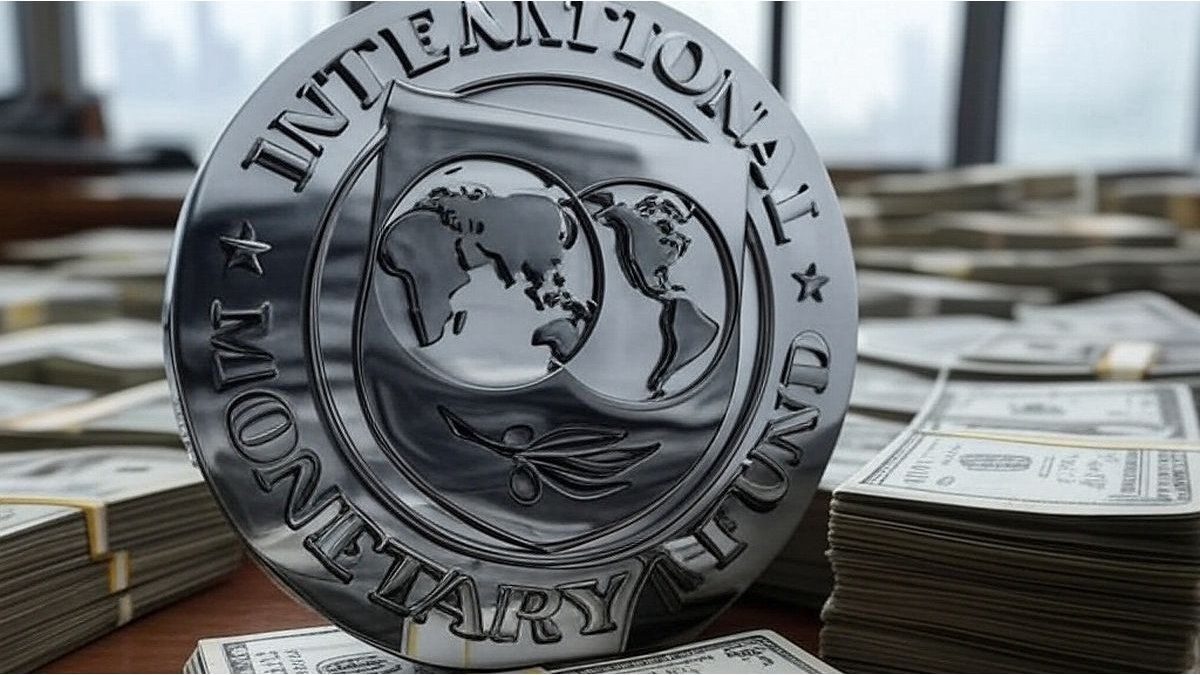An Argentine delegation, headed by the Secretary of Finance, Pablo Quirnoand the Deputy Minister of Economy, José Luis Dazahe submitted this week at Washington a request to the International Monetary Fund (IMF) for Obtain a dispensation (“waiver”) for breach of the reserves accumulation goal.
This order, not yet granted by the agency but very likely to beseeks to unlock – and accelerate – a disbursement of US $ 2,000 million corresponding to the first review of the Extended Facilities Program (EFF) for US $20,000 million. However, The summer break of the IMF could postpone approval and the turn of the funds until September.
The negotiation between the IMF and the economic team delays the staff Level Agreement (SLA), An insurmountable requirement for the Board of the Fund to evaluate the results of the first review of the agreement.
The agreement with the IMF established a target of accumulation of US $ 4,700 million in reservations For the second quarter of 2025, an objective that the Government failed to achieve. Sources close to negotiations attribute this breach to a combination of factors: debt maturities, the non -emission strategy (less pesos to buy dollars) and restrictions that the Casa Rosada imposed, such as the unique goal of not intervening within the exchange band until the dollar’s price touched the base of it at $ 1,000. The current account deficit, which reached US $ 5,100 million in the first half of the year, five times higher than the IMF projections, has aggravated pressure on reserves of the Central Bank, in a context of inflation greater than 100% per year.
Despite this setback, in the opinion of the IMF – according to his spokesperson, Julie Kozack – the economic policy of President Javier Milei has been highlighted for his solid performance in other areas of the program. The primary fiscal surplus, which exceeded $ 6.9 billion to May compared to a goal of $ 6.07 billion, reflects a drastic fiscal adjustment, based on subsidy cuts, social programs and public spending. In addition, the recent placement of bonte bonds for US $ 4,000 million has allowed the treasure to rebuild reserves without resorting to the exchange market, an achievement that seems to have reinforced Argentina’s negotiating position before the IMF.
The Waiver application: urgency and obstacles to reach the elections
The “waiver” request submitted this week It seeks to prevent the breach of the reserves goal from derailing the program with the IMF. According to sources consulted, the Argentine economic team presses – the verb is excessive – so that the agency’s executive directory evaluates the order before its summer break, which begins at the end of July. However, The IMF schedule suggests that the board meeting could be delayed until August or Septemberwhich would delay the disbursement of US $ 2,000 million until the ninth month of the year.
The negotiations, which began last week in Buenos Aires with a technical mission led by bikas Joshi, head of mission for Argentina, have been qualified as “highly constructive.” As stated, The IMF recognizes the advances in fiscal consolidation and the recent flexibility of the exchange ratewhich marked the transition to a flotation regime with bands. However, the lack of confirmation on the approval of the “waiver” generates uncertainty, since the agency must balance flexibility with the demands of its member countries.
The IMF history with Argentina offers reasons for optimism. In previous reviews (2022, 2023 and 2024), the agency granted similar dispens When the country demonstrated advances in other goals. Analysts such as Claudio Loser, former director of the IMF, and former Finance Secretary Daniel Marx consider that the probability of approval is high, although it could imply a recalibration of reserves goals for the next quarters, adjusting them to structural limitations.
In the economic team they believe that the “waiver” request is part of A favorable geopolitical scenario for Argentinathanks to the alignment between President Milei and the president of the United States, Donald Trump, whose support in the IMF directory could facilitate approval. However, countries such as Germany, Japan and the Netherlands have expressed reservations on the exposure of the IMF to Argentina, which accumulates a debt of US $ 41,000 million since 2018, in addition to the US $20 billion of the current program.
To this panorama is added the uncertainty generated by the judicial ruling in New York, which forces the country to deliver 51% of YPF’s actions to demanding funds. This litigation, which could imply a cost of US $ 16,000 million, represents a risk for reserves and access to international markets. Although the issue is not directly linked to the review of the program, the IMF is monitored closely, aware of its potential impact on the country’s financial stability.
Economic and social implications
In the City they believe that the disbursement of US $ 2,000 million is crucial to reinforce the reserves of the Central Bank, which faces a constant pressure due to the need to fulfill international obligations and sustain exchange stability. The economy comes from contracting in 2024 and, according to the Government, in 2025 a growth of 5.5% will be reached, a figure that coincides practically with the 5% estimated by the IMF. However, the current account deficit, fed by an increase in imports, remains an obstacle to the accumulation of reserves.
The economic team, led by Quirno and Daza, defends that the current account deficit is “reasonable” in an economy in transition towards commercial opening. In addition, alternative strategies stand out to strengthen reserves, such as “Block Trade” operations and the issuance of Bonte bonds, which have allowed to capture currencies without pressing the exchange market. However, government economic reforms, which include subsidies and deregulation cuts, face growing social tensions, with protests that could intensify whether inflation and fiscal adjustment persist.
Source: Ambito




